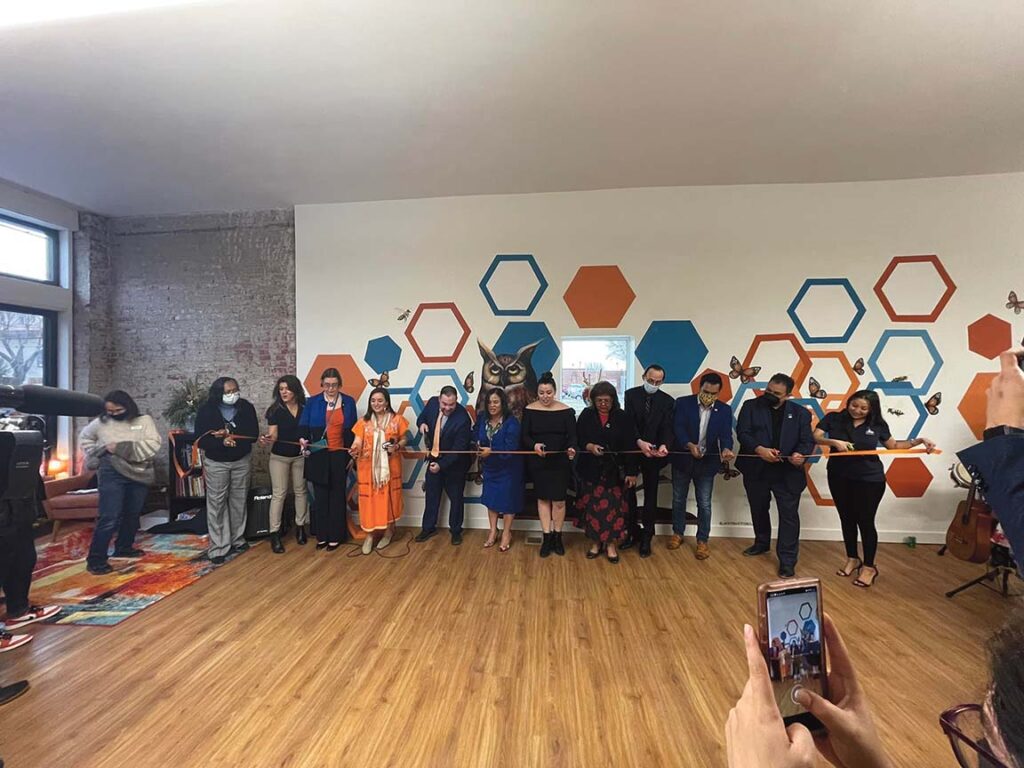
By Aniaya Reed
Edgar Palacios, President/CEO founded LEC (Latinx Education Collaborative) in 2018. His goal for his non-profit organization is to strengthen a diverse representation of Latinx educators in the classroom.
“Our mission is to increase Latinx professionals in K-12 classrooms,” Elizarraraz said. “Our research shows that teachers who look like students are more inclined to graduate high school. We have also seen Latinx students have higher proficiency rates when they have Latinx teachers [and] professors.”
Susana Elizarraraz, Deputy Director of LEC collaborated with LEC staff to achieve their mission by establishing three strategies: retention, pathways exposure, and recruitment support.
“We work off three verticals: home, heart and humanity,” Elizarraraz explained. “Our home vertical can be translated to our arm of the work. We’re building a home for our Latinx educators where they can be supported and loved. The second vertical is heart, we want our students to consider education. Our third vertical is humanity, working to push schools and districts to acknowledge the humanity of Latinx educators.”
Palacios explains his reasoning for creating LEC and his own identity in the Latinx community.
“I had some time that I spent traveling around different schools around the country,” Palacios said. “I saw schools with Latinx students, but no Latinx teachers. I asked the principals directly why there were no Latinx teachers in the building. I left that building with determination and solutions to mediate the problem of the lack of Latinx teachers in schools.”
Originally from Florida, Palacios reflects on his childhood and growing up around Latinx teachers.
“Growing up in Miami, being Latino was normal,” Palacios said. “I could speak Spanish to the teachers, and I had a diverse environment. I got a strong foundation of being Latino and what it meant. Particularly, I think about newcomers, and I can’t imagine what it’s like to have to figure things out by yourself. The more experiences educators have the better the educational experience for the student.”
Palacios knows representation matters so that the full story can be told, and schools must showcase diversity within faculty and students.
“Unfortunately the Latinx push-out rate is higher than other demographics,” Elizarraraz said. “Our community is facing a large percentage of us that are being pushed out of schools. The fact that our students aren’t graduating at the same rates means there’s a problem. That has lifelong consequences. When you’re young and decide to drop-out you might not see the ramifications of it.”
LEC elevates the voices of the Latinx community, and organizations like LEC instill lasting confidence in Latinx educators around the world.
“It seems like a simple mission and it is not,” Palacios said. “The reality is we have to do the work within our community, which is critical to the success of our future students. Our values of community integrity impact personal growth and authenticity. We believe in the power of being a part of something. A lot of Latinx teachers feel isolated in their buildings.”
Elizarraraz believes LEC is something to believe in. It is an opportunity for public, charter and private schools to find solutions to the lack of representation of Latinx educators.
“Our Latinx educators are leaving their positions, because of multiple attributes like racism, their accents, microaggressions, lack of representation, or not being recommended for awards or positions,” Elizarraraz said. “Latino educators leave the classrooms after 3 years and the national average is 5 years.”
Palacios discussed future goals for LEC, and the contributions LEC will make in the upcoming years.
“We want to make sure we create a space where our community feels safe and feels heard,” Palacios said. “We are members of a larger community and we want to make sure we are building those alliances, and relationships to continue to help Northeast thrive. We have a goal that we will recruit 50 Latinx teachers in the next 5 years.”
Palacios also created another non-profit, Revolución Educativa (RevED). They engage in advocacy for Latinx students and teachers.
“We work diligently at elevating the voices of our Latinx teachers,” Palacio said. “We want to acknowledge that Latinx teachers do exist.”
For more information on both organizations, visit latinxedco.org.
















